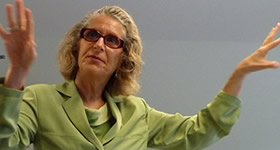I’ve told you about what I consider “philanthropy’s moral dilemma.” Philanthropy coming from privilege and reinforcing the status quo. Philanthropic organizations seeking the power that comes with privilege, that reinforces the status quo. Check out “Philanthropy’s Moral Dilemma” there in the lefthand navigation bar of this homepage. Think about it.
Read “Philanthropy’s Commitment to the Common Good,” by Alison Goldberg, writing in the summer 2009 newsletter of the National Committee for Responsive Philanthropy. The common good…not the status quo. “The ‘common good’ embodies the idea that shared societal resources should be used to improve well-being for the greatest number of people possible.” But that’s not what actually happens with most philanthropy. For example, in 2007, only 1/4 of all foundation giving went to “economically disadvantaged communities.” And remember, 10% of households in the U.S. own 70% of this country’s wealth. Where’s the common good in that?
The NCRP article reminds us that the public – that’s you and me, U.S. citizens and taxpayers – make a financial contribution to foundations “in the form of tax relief.” Foundations (and those donors) aren’t paying taxes on the charitable gifts.
Goldberg asks how can we realign the institution of philanthropy – those foundations, the wealthy – so philanthropy actually challenges inequality? How can we ensure that philanthropy helps the common good a bit – maybe a lot more? And I ask, how can we avoid (or exorcise) philanthropy’s moral dilemma?

